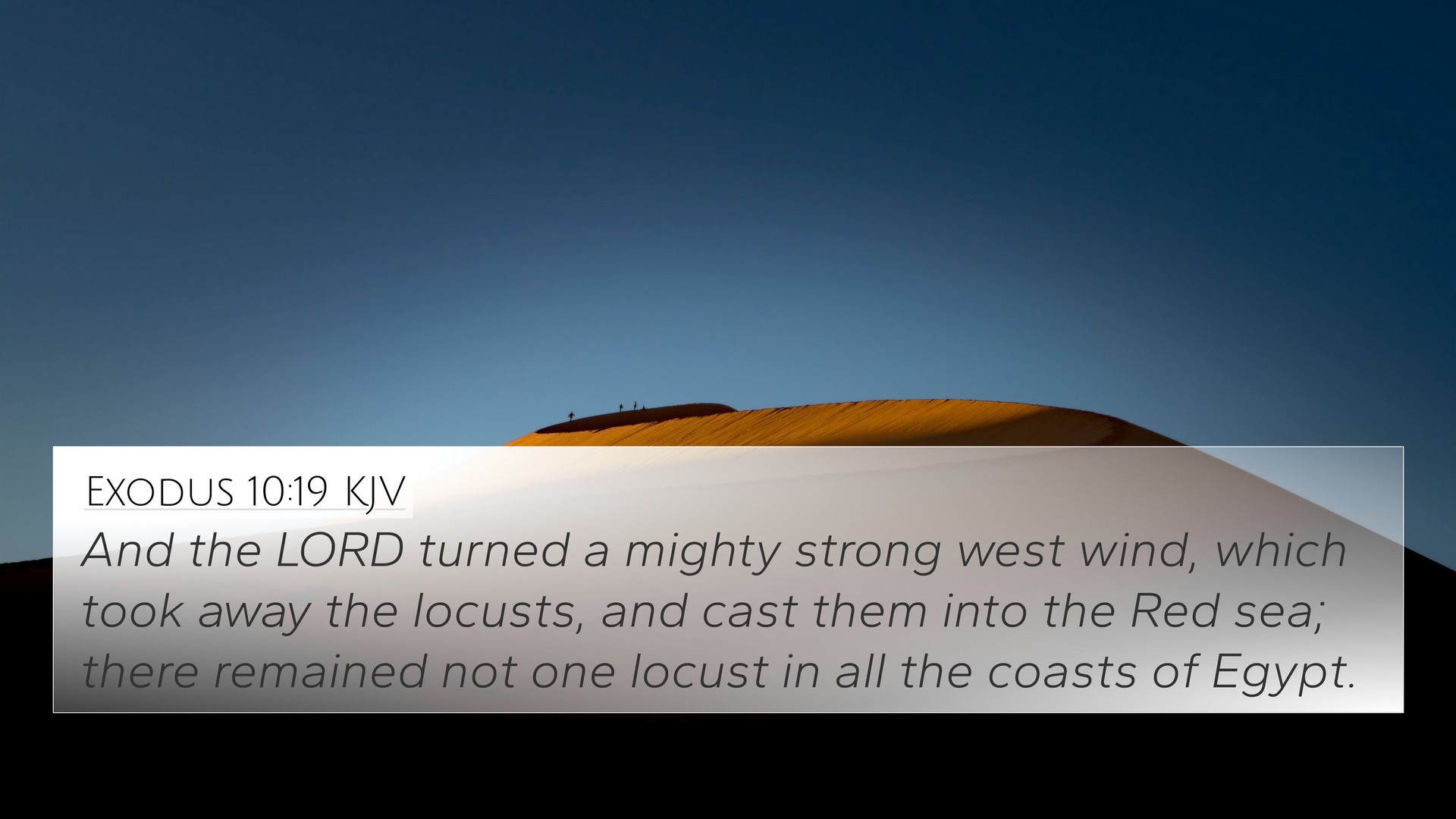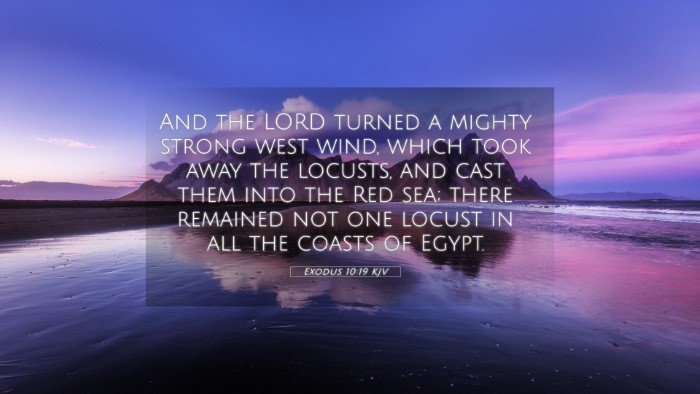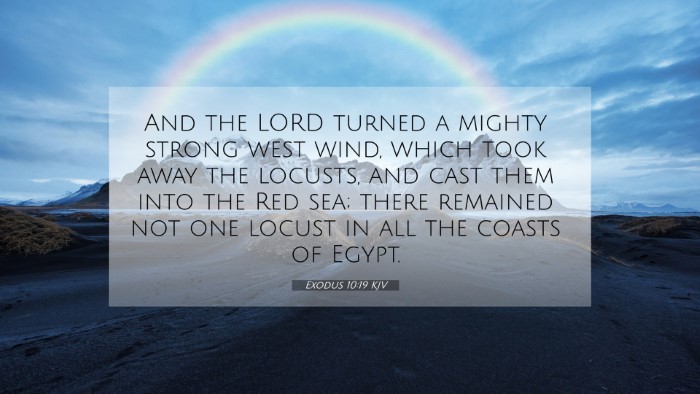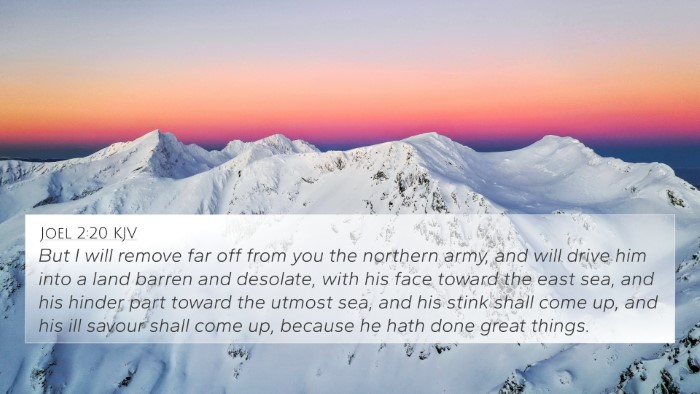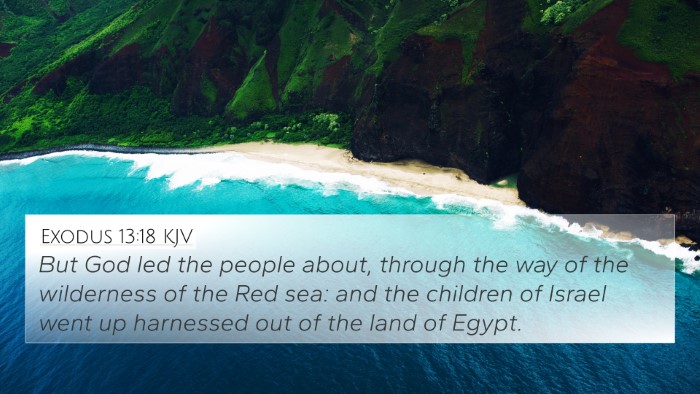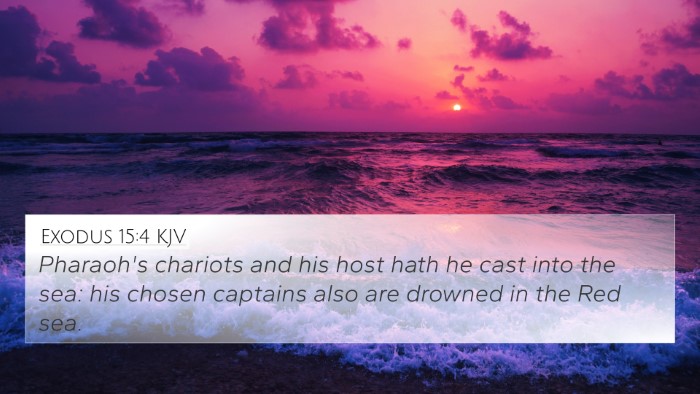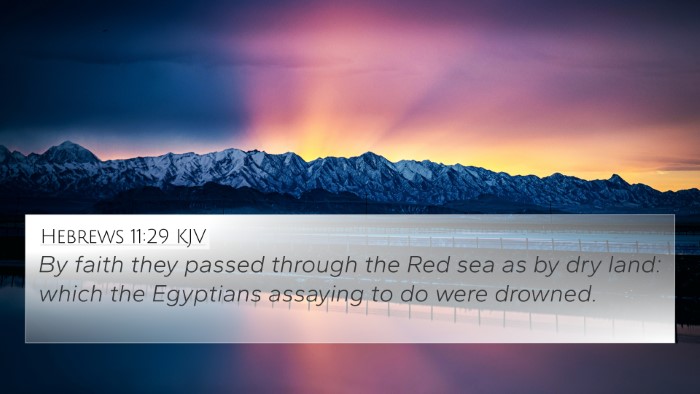Understanding Exodus 10:19
The verse Exodus 10:19 reads: "And the LORD turned a mighty strong west wind, which took away the locusts, and cast them into the Red sea; there remained not one locust in all the coasts of Egypt." This moment in the narrative is significant as it showcases the power of God over nature and His ability to deliver His people from their oppressors.
Verse Analysis
Exodus 10:19 plays a critical role during the plagues that struck Egypt. In this verse, we see God not only demonstrating His control over the natural world but also fulfilling His promise of deliverance.
Commentary Insights
Insights from noted public domain commentaries such as those by Matthew Henry, Albert Barnes, and Adam Clarke reveal various dimensions of this verse:
- Matthew Henry: Henry emphasizes God’s sovereignty, underscoring how the Lord orchestrates nature in accordance with His divine will. The locusts, sent as a plague, were entirely removed by God's command.
- Albert Barnes: Barnes notes the significance of the west wind as a natural force that was used by God to execute His judgment on Pharaoh and the nation of Egypt. The act symbolizes total annihilation of the trouble caused by the locusts, demonstrating God’s provision for His people.
- Adam Clarke: Clarke highlights the miraculous nature of this event, indicating it reinforces the lesson that God’s intervention will suffice to eliminate threats to His people. The removal of the locusts also signals a new beginning for the Israelites as they prepare for their exodus from Egypt.
Bible Verse Cross-References
Exodus 10:19 connects with several other scriptures that deepen our understanding of the themes present in this passage. Here are some cross-references:
- Exodus 8:13: God's control over nature is shown through the plagues sent upon Egypt.
- Exodus 9:23: This verse depicts God using natural phenomena to execute His plan.
- Psalm 78:46: A reminder of God’s provision, where locusts were used to punish Egypt.
- Joel 2:25: The restoration promised after a devastating plague of locusts indicating God’s mercy.
- Revelation 9:3: Locusts are used metaphorically in prophetic literature to signify judgment.
- Jeremiah 51:14: Echoes the theme of God’s power to destroy malicious forces.
- Matthew 8:27: Highlights Jesus’ authority over nature, akin to God’s power demonstrated in Exodus.
Thematic Bible Verse Connections
This verse invites reflection on several broader Biblical themes:
- Divine Sovereignty: The total control God displays over creation.
- Judgment and Mercy: The contrast between punishment for disobedience and deliverance for the faithful.
- Transformation: As the locusts were removed, the opportunity for new beginnings emerges for God’s people.
- Faithfulness: God’s persistent actions reveal His faithfulness to fulfill His covenant with Israel.
Cross-Referencing Biblical Texts
Using tools for Bible cross-referencing can greatly enrich the study of such verses. Understanding and identifying connections between these texts is essential for comprehensive Bible study.
How to Use Bible Cross-References
Utilizing a Bible concordance, you can find related verses that expand on the hearts of Biblical themes or storylines, enhancing your insights:
- Look for thematic links between the Old and New Testament.
- Identify repeated symbols and narratives.
- Explore how different authors in the Bible address similar issues.
Conclusion
Exodus 10:19 is a pivotal verse that encapsulates the concepts of divine intervention, judgment, and deliverance. The insights from various biblical commentaries and cross-references not only aid in understanding this particular verse but also allow for a deeper engagement with the inter-Biblical dialogue on themes of God's sovereignty, mercy, and ultimate redemption.
